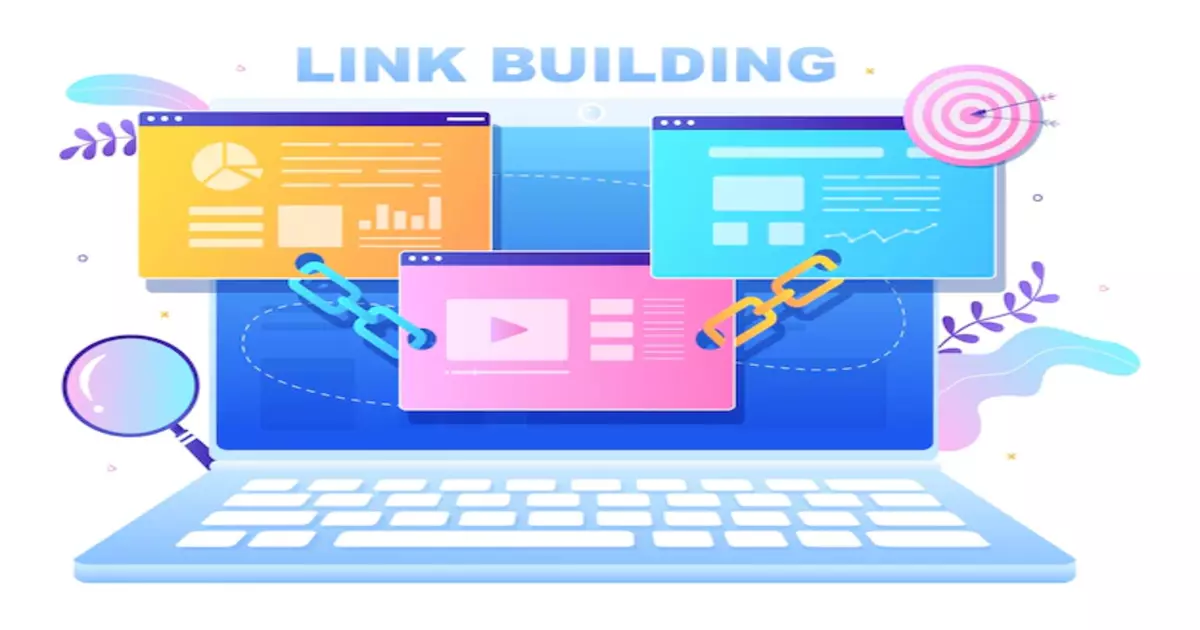What is link building?
The activity of getting other websites to link to pages on your site is known as link building. Its goal is to raise your pages' "authority" inside Google's sight so that they will rank higher and receive more search traffic.
Why is link-building essential?
The additional first-rate backlinks a page has, the more advanced it can rank. Backlinks are one of the peak Google’s essential
ranking aspects.
Google and further key search engines deliberate backlinks as “votes of confidence” for the web receiving the links. Each vote indicates that your content is valued, trustworthy, and valuable.
So, if you need your sites to appear highly in Google search results, backlink development will probably be necessary.
How to build links?
However, top link-building strategies and tactics fit into one of the four categories stated below:
- Add - Manually add links to the web
- Ask - Ask for a link by contacting the site owners directly.
- Buy - Transferred money for links
- Earn - Receive regular links from your visitors.
1. Addition links
It is referred to as "addiction" a link if you really can visit a web that is not your own and manually post your link. The most mutual tactics that apt into this type are:
- Business manual plans.
- Social profile making.
- Blog remarking.
- Post to forums, groups, and Q and A sites.
- Making job search schedules.
Building links through those strategies are very simple to do. And for that strict aim, links incline to have actual low value in the senses of Google. Therefore, In a few cases, they may even be labeled as spam.
If you can access the web and manually place your link there, nothing stops your players from doing the like.
Though, you shouldn’t overlook this set of link-building strategies entirely. Each of them can really be fairly helpful for your online business for details other than SEO.
2. Asked for links
As the name recommends, once you've notified the website's owner and convinced them to link to you, this is what will happen.
That “convincing reason” is totally vital success aspect. The individuals you go out to don’t care about you and your web, therefore, they have zero reasons to endorse you or your work.
Few link building strategies that fall into this type:
- Visitor blogging – Make valuable content for their web.
- Skyscraper practice – Display them a good source than the one they’re concerned about.
- Link conversations – Deal to link back to them if they settle to link to you.
- Source page link building – Display them a good reserve that fits their current list.
- Damaged link building – By offering a replacement, you can aid them in fixing a "dead" link on their site.
- Picture link building – Request credit if your picture is used.
- Unlinked remarks – Ask to style the reference of your product as “clickable.”
- Link changes – Ask to mark moves to a current link facing at your web.
These tactics look to create quite some logic, right? Nevertheless, as soon as you drive your first email appeal, you’re possible to look at the strict reality—your “convincing reason” isn’t convincing enough:
- Your visitor post isn’t worthy enough.
- Your reserve isn’t worthy of a reference.
- The "skyscraper" you believed was as tall as you think.
That is why various SEOs are still looking for ways to make it beneficial for extra gathering and offer rather in exchange for a link, such as:
- an online announcement.
- An email newssheet blast.
- Free entree to the best product or service.
- A link in conversation.
But posing these types of “extras” grows them into the gray zone of what is deliberated a “link scheme,” given to Google’s rules.
3. Buy links
We don’t endorse that you purchase links! If you don’t have the most knowledge of it, you’re probable to waste lots of money on unusable links that will have nothing influence on your rankings. Or possibly suffer a website penalty.
Though, we will be adding you at a difficulty if we don’t reveal the fact that numerous people in the SEO business do “buy” links in all kinds of ways and achieve to get gone with it.
So if you’re keen to risk the well-being of your web and buy links, try looking elsewhere for guidance on how to do it "safely".
4. Making links
You “earn” links once other individuals link to the pages on your web deprived of you having to ask them to do so. This clearly doesn’t occur if you have somewhat really owing that other web owners will frankly want to reference on their web.
However, people cannot link to things they are unaware of. Therefore, you will need to spend in marketing your page, despite of how great it is. Additionally, the more users who view your page, the more likely it is that some of them may choose to link to it.
I'm going to provide some approaches and ideas later on in this chapter to help you both produce "link-worthy" content and market it to viewers who could link to it.
Extra: Conserving links
Strictly, conserving your hard-earned links does not actually fall under the meaning of “link building.” But once you miss an essential backlink, the “vote” that it was transferred to Google is also mislaid. So it is justly vital to reserve your hard-earned links.
Two easy techniques to do it:
- Setting 404 pages that have worth backlinks
- Nursing your mislaid backlinks and feat out to a web owner once a key link goes lost
Let’s learn something more:
